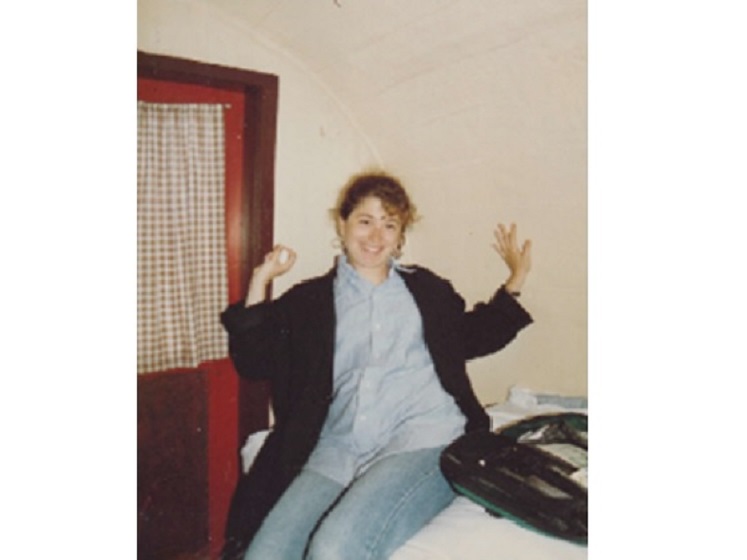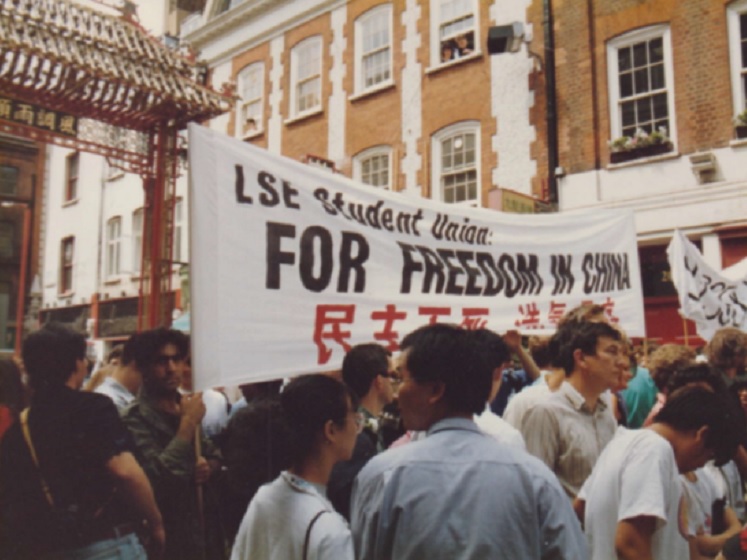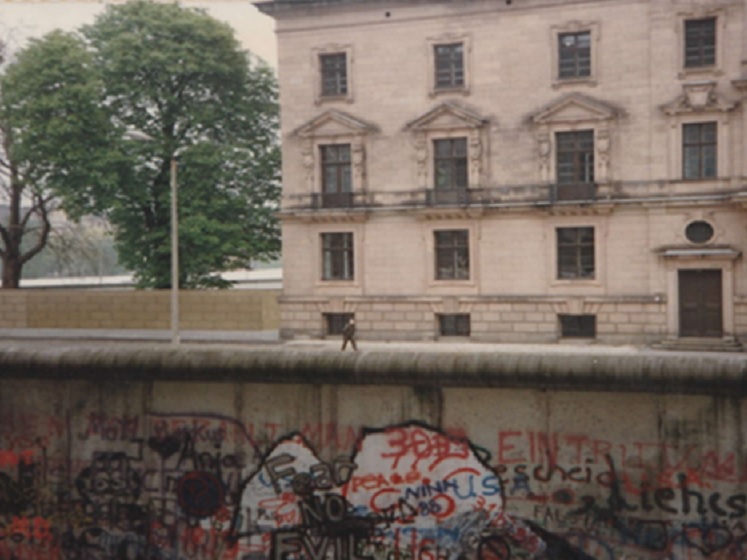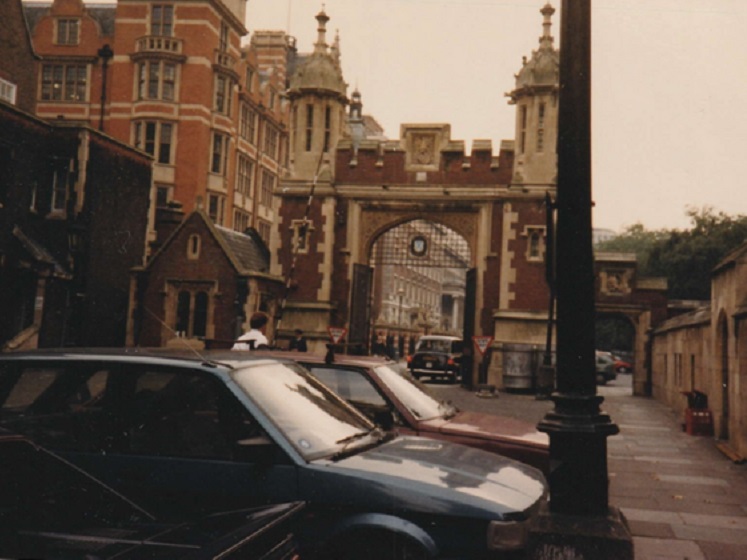As part of our 125-year celebrations, Student Ambassador Bareera Ahmed, Department of Government, interviewed alumna Mary Wise. Mary attended LSE's General Course, studying economics in the academic year 1988/1989.
 Mary C Wise, LSE Alumni. Graduate of General Course Economics, 1988-89. Credit: Mary Wise
Mary C Wise, LSE Alumni. Graduate of General Course Economics, 1988-89. Credit: Mary Wise
Mary, please tell us a little about yourself
Hi, my name is Mary Wise. I currently work in Maryland, for a health insurance company. My role includes designing, surveying, programming, and things like that. I have a husband, a teenage daughter, and a stepson. I live north of Baltimore, US, in a suburban area. 2020 has certainly been an interesting year!
LSE is a different world to the United States, that must have been a big change, to move to London as a student
I do love London. It was of course an adjustment, as it was overseas, but I grew up in Brooklyn, so I was used to the subways, and the buses, the not driving all over the place, and the urban environment - I certainly gravitated to that a lot.
How did you end up at LSE?
I went to college in Massachusetts, and they offer junior study abroad programmes. I applied with one of my classmates, and we both got in - so strategically we requested rooms together in halls at LSE as a double. One of the best decisions we ever made. Rosebery Hall, on Rosebery Avenue in Islington. We studied Economics - Labor Economics. I was interested in the applied economics aspects, and the logic course, which was awesome.
Living in halls, we met a lot of international students who were not American, which was nice too.
LSE is definitely known for its internationalism - one of its best aspects, I would say
Yes. A lot of students from all over England and Ireland. Two guys from Germany across the hall from us. Another student from Hong Kong, and of course during my time at LSE was when Hong Kong started to shut down, so we actually went to the democracy protests.
 Hong Kong March, Summer 1989. Mary Wise
Hong Kong March, Summer 1989. Mary Wise
What were the defining political affairs of the time? How was campus involved?
It was kind of interesting. There was the Hong Kong issue, so we were hanging out with Green Party and Labour Party students to attend that march. On campus, there were the grants-not-loans strikes, but we only knew of those because of our friends. Us being American students, we were paying full fees, and the strikers understood this, so we often had to sneak into class in a way that wouldn't cross the picket line. We would come through the back, from the library entrances, and avoid the main Holborn doors.
Probably the most interesting thing we did - which I do not regret, is when we had our six week break for spring. It was cheaper to travel than it was to go home. The year was 1989, so the Berlin Wall was still up, so we decided to go across to the bloc of East European countries. Budapest, Prague, and Berlin, Germany. The Wall was up as we travelled, and we had to cross through Checkpoint Charlie. It was that November, when I returned home to the states, that the Wall came down. It was an extremely interesting time for us as students. These are the kinds of things that defined our time at LSE.
 The Berlin Wall, East Berlin. Mary Wise
The Berlin Wall, East Berlin. Mary Wise
That is incredible, tell us more about what it was like to travel around the Berlin Wall, as LSE students
It was a little bit intimidating! First we went to Budapest, which was ok, because one of our friends in the halls had a friend in Budapest, so we were able to stay at their flat. Budapest was pretty cool, but Prague was very strict. There were weird details - like ice cream stands which only served a single flavor of ice cream. It was very limited and restrictive. On the train from Prague to Berlin, it actually left us at East Berlin!
In East Berlin, we had to figure out which queue to get into to get to West Berlin, which was a little harrowing, as we spoke no German and had no idea what was going on, but somehow we made it. We stayed at a youth hostel in West Berlin, but on our way back to visit East Berlin again, we had to go through Checkpoint Charlie. This (East Berlin) was very strict, very subdued. People did not talk to you much or interact. But on the other side, in West Berlin, there was such a big difference! So much energy, activity. The whole thing was definitely an adventure.
What are your memories of being on LSE campus?
When I was in LSE, I actually participated in a team sport! I was never much of an athlete in school, but the Women’s Lacrosse team at LSE was huge, and always in need of players. We would train on Wednesday afternoons, by getting the train from Victoria, and going to LSE sports grounds. We would practice in the afternoon, followed by tea and sandwiches, and then have to catch the 5pm train and try and make it back in time for dinner! The team was really nice, and they taught me how to play at low level scrimmage.
Otherwise, I had cool experiences from all over LSE. Meeting people all the time, not just in class, but hanging out in the alley, in hallways, in halls, down at the pub, in the basement. Those were really good experiences - to just go and interact. The other fun thing about LSE was being able to walk to campus - going through the back, through the courts.
 Coming to LSE via the Inns of Court. Mary Wise
Coming to LSE via the Inns of Court. Mary Wise
How were the academic side of things?
The academic aspect was certainly new for me, as I was trying to figure out what I liked, subject wise. The economics was a lot more reading. I learnt statistics, and logic - which I loved, even though I had never taken a logics course before. At LSE, we got a little more of the theory, and interesting topics, and the discourse.
Things are of course different now, but back then, when you needed to use the library, you would have to go and find a physical book, and take a copy and note down the information you needed! In general, at LSE, it was a lot more independent and research driven, and there were a lot of avenues to dig deeper into things.
Did this help you shape your post-graduate path?
Certainly, it helped me figure out that I wanted to do a lot more on the labour end of things, more applied, less theoretical. I did research for a while, I worked for the Maryland state, and now I work for insurance - which might be different data but you look at the same things. I’m also into programming, which logics really comes in useful for. Programming is a hobby and side hustle for me.
Any advice you would give LSE students of today?
I don’t have any regrets. I didn’t hide away and bookworm all the time, I did a lot of travel, both inside the UK and out. I did study, but I also got out there! I would tell students now to definitely take advantage of the school’s physical location and global location. You have all these people and resources from all over the world. The city attracts different types of people. Try to take some risks, try random things! Stay the whole year at LSE if you can, sit the exams in the summer, and just enjoy getting into the stride of things.